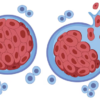Managing Juvenile Diabetes with Ayurveda: A Holistic Approach
Managing Juvenile Diabetes with Ayurveda: A Holistic Approach, also known as Type 1 diabetes, is a condition where the body’s immune system attacks the insulin-producing beta cells in the pancreas. This results in elevated blood glucose levels and requires lifelong management through insulin therapy, diet, and lifestyle changes. While conventional medicine focuses on insulin replacement and meticulous blood sugar control, many people seek complementary approaches to enhance their well-being and support diabetes management. One such approach is Ayurveda, an ancient system of medicine from India that emphasizes holistic health.
Understanding Juvenile Diabetes

Type 1 diabetes typically manifests in children and young adults and is characterized by the body’s inability to produce insulin. Symptoms include excessive thirst, frequent urination, unintentional weight loss, and fatigue.
Managing Type 1 diabetes requires a multifaceted approach, including:
- Insulin therapy: Regular injections or an insulin pump to manage blood sugar levels.
- Dietary management: Monitoring carbohydrate intake and eating a balanced diet.
- Physical activity: Regular exercise to maintain a healthy weight and improve insulin sensitivity.
- Blood glucose monitoring: Frequent checks to ensure blood sugar levels remain within the target range.
While these measures are essential, many individuals explore complementary approaches like Ayurveda to further support their health and well-being.
What is Ayurveda?
Ayurveda, which translates to “the science of life,” is a traditional system of medicine originating from India. The three primary doshas are:
- Vata: Represents movement and metabolism.
- Pitta: Governs digestion and transformation.
- Kapha: Provides structure and stability.
Ayurvedic treatment aims to restore balance through diet, lifestyle changes, herbal remedies, and detoxification practices.
Ayurvedic Perspective on Diabetes
In Ayurveda, diabetes is referred to as “Prameha” or “Madhumeha,” which translates to “honey urine” due to the sweet-smelling urine seen in diabetic individuals. It is classified as a metabolic disorder primarily related to imbalances in the doshas, particularly Vata and Kapha.
- Vata Dosha: An imbalance in Vata can lead to symptoms like dryness, irregular appetite, and weight loss, which are commonly observed in diabetes.
- Kapha Dosha: An excess of Kapha can result in obesity, sluggish digestion, and a sense of heaviness, exacerbating diabetes symptoms.
Ayurvedic treatment focuses on balancing these doshas, improving insulin sensitivity, and supporting overall metabolic health.
Ayurvedic Remedies for Juvenile Diabetes
- Dietary Recommendations Ayurveda emphasizes a diet tailored to an individual’s dosha. For managing juvenile diabetes, consider the following dietary guidelines:
- Bitter Foods: Foods like bitter gourd (karela), fenugreek seeds, and neem are recommended for their potential to regulate blood sugar levels. Bitter gourd, in particular, is noted for its hypoglycemic effects.
- Avoid Sugary and Processed Foods: High-sugar and processed foods can aggravate Kapha dosha and lead to increased blood sugar levels. Focus on whole, unprocessed foods, including fresh vegetables, fruits, whole grains, and legumes.
- Fiber-Rich Foods: Foods high in fiber, such as barley, oats, and flaxseeds, help regulate blood sugar levels and improve digestion.
- Spices with Antidiabetic Properties: Incorporate spices like turmeric, cinnamon, and ginger, which have potential antidiabetic effects. Turmeric, for example, contains curcumin, known for its anti-inflammatory and insulin-sensitizing properties.
- Herbal Supplements Several Ayurvedic herbs are believed to support diabetes management:
- Gymnema Sylvestre (Gurmar): Known as the “sugar destroyer,” this herb may help reduce sugar absorption and enhance insulin production.
- Triphala: A blend of three fruits (amla, haritaki, and bibhitaki), Triphala supports detoxification and digestive health, which can benefit overall metabolic function.
- Shilajit: A mineral-rich resin believed to improve energy levels and support glucose metabolism.
- Lifestyle Practices Ayurveda emphasizes lifestyle practices that support balance and health:
- Regular Exercise: Engage in physical activities suitable for your dosha, such as yoga, walking, or swimming. Exercise helps regulate blood sugar levels and improves overall health.
- Stress Management: Chronic stress can negatively impact blood sugar control. Ayurvedic practices like meditation, pranayama (breathing exercises), and mindfulness can help manage stress effectively.
- Sleep Hygiene: Ensuring adequate and restful sleep is crucial for maintaining balance. Ayurveda recommends a consistent sleep schedule and creating a calming bedtime routine.
- Detoxification and Cleansing Detoxification is a key component of Ayurveda, aimed at removing toxins and restoring balance:
- Panchakarma: This comprehensive detoxification process includes treatments like oil massages, herbal steam baths, and therapeutic enemas. Panchakarma helps eliminate toxins from the body and restore health.
- Daily Cleansing Rituals: Simple practices such as tongue scraping, oil pulling, and drinking warm water can support digestive health and overall well-being.
Integrating Ayurveda with Conventional Treatment
It’s important to view Ayurvedic treatments as complementary to, rather than a replacement for, conventional diabetes management strategies. Consulting with a healthcare provider knowledgeable in both conventional and Ayurvedic medicine is essential to ensure that complementary therapies do not interfere with prescribed treatments.
Practical Considerations
- Consultation with Healthcare Providers: Before starting any new treatment, consult with both your endocrinologist and an Ayurvedic practitioner. This ensures that any complementary therapies are safe and suitable for your specific condition.
- Personalization: Ayurveda emphasizes individualized treatment plans. A thorough consultation with an Ayurvedic practitioner will help tailor recommendations to your specific dosha, lifestyle, and health needs.
- Monitoring and Adjustment: Regular monitoring of blood glucose levels and periodic evaluations of treatment efficacy are crucial.
Conclusion
Ayurveda offers a holistic and personalized approach to managing juvenile diabetes by focusing on balancing doshas, enhancing metabolic health, and supporting overall well-being. While Ayurvedic remedies and practices can provide valuable support, they should complement rather than replace conventional diabetes management strategies. Integrating Ayurvedic principles with conventional treatments can offer a comprehensive approach to managing Type 1 diabetes, improving overall quality of life, and promoting long-term health.








Leave a reply